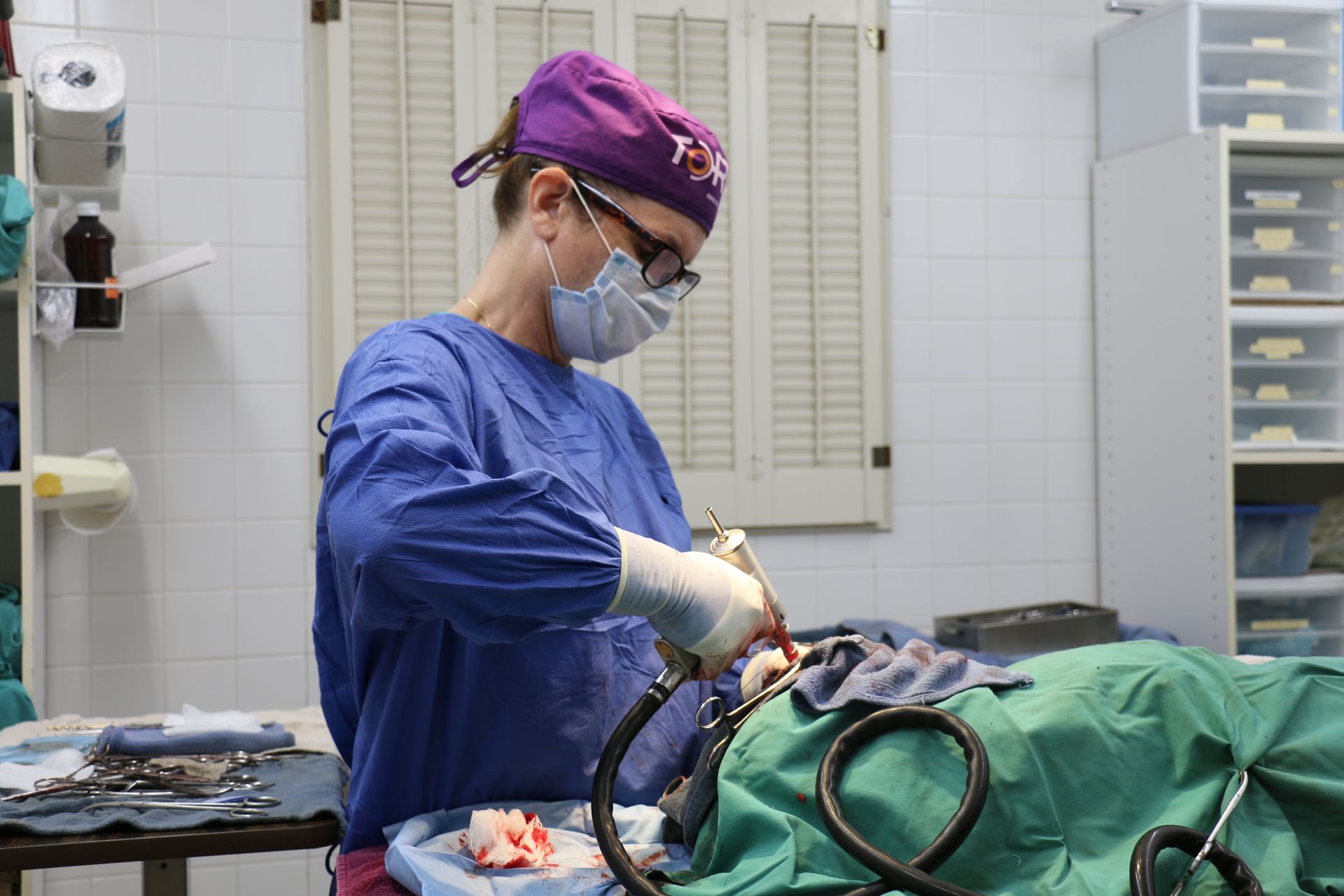Veterinary Surgery & Treatments
in the Greater San Angelo, TX Area
At Knickerbocker Road Animal Hospital, we understand how scary it can be when your pet needs surgery. From minor, routine surgical procedures like dental extractions and spaying and neutering to major, life-saving emergencies, our animal hospital provides your pet with the care they need. Surgical procedures are recommended with the best interest of your pet in mind.
Spaying and neutering is a common surgery performed to help eliminate the possibility of unwanted litters. However, it also removes the threat of cancers and other health problems for pets, allowing them to live a long and healthy life. Our veterinarian team strives to give you and your furry friend the best treatment possible.

Our Veterinary Hospital Offers:
- Spaying & Neutering
- Dental Care/Extractions
- Ear Cropping
- Soft Tissue Surgeries
- Exploratory Laparotomies
- Mass Removals
- Orthopedic Surgeries
- Emergency Care
- Patellar Luxation Surgeries/ACL Repairs/Fracture Repairs
Making the Decision to Proceed with Surgery
When you are faced with the decision to bring your pet in for surgery, it is important to think about what is important for your pet. Our veterinarian will help guide you in making the best decision for you and your pet. Some things to think about include:
- Age of your pet
- General health of your pet
- Potential complications from surgery
- Potential outcome if surgery is not completed
- Recovery time
- Post-op care needed
Preparing Your Four-Legged Friend for Veterinary Surgery:
Preparing your four-legged friend for any type of pet surgery can be stressful. While the veterinarian will provide you with instructions, you may still feel overwhelmed. Luckily, we’ve compiled a list of the basics below so that you’re all ready for when the day comes.
The Week Prior
While you may think that one whole week before pet surgery is a little early to start preparing, your veterinarian may need additional testing done before your pet goes under any type of anesthesia. These may include blood work, radiographs, ultrasounds, and other types of diagnostic testing.
Additionally, you may want to bring your dog to the groomer a few days before surgery, as you will have to keep the incision dry after the procedure.
The Night Before
Oftentimes, preparation the night before is different for each dog, so it’s important to discuss this with your veterinarian. You may want to ask questions such as:
- Can my dog take their medication?
- Can my dog exercise normally on the day before pet surgery?
- What time does my dog need to stop eating or drinking?
The night before is also a great time to prep your home for recovery. You will want to make sure to have an area in your home ready for your pet to rest. This could mean separating the dog from other pets, setting up a crate, washing bedding to prevent risk of infection, and making sure any medications and food required to meet special dietary needs is all packed and ready to go to the veterinarian.
The Morning of
One of the most important things to do in the morning is to ensure your pet has no access to food or water. Eating or drinking before pet surgery could cause your dog to aspirate during anesthesia, which is potentially life-threatening.
In some cases, the veterinarian may ask you to drop off your pet in the morning, as this gives them plenty of time to complete any additional testing and catheter placement before the pet surgery. Before you leave their office, ensure the front desk has your contact information so they can reach out with any updates.
Contact Our Veterinary Hospital Now to Schedule an Animal Surgery!
If your pet is in need of surgical care in San Angelo, TX area, rely on Knickerbocker Road Animal Hospital, your local small animal veterinarian. We care about your pet as if it were our own and want to make sure we do all that we can to make your pet live a long, healthy life.
For more information about the range of veterinary surgery procedures we can perform or to schedule an animal surgery today, please contact our veterinarian team today!


